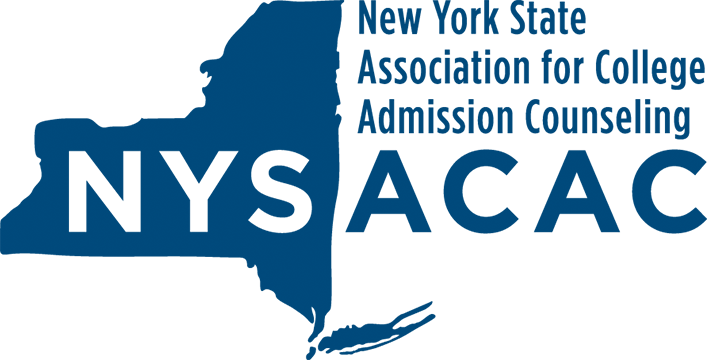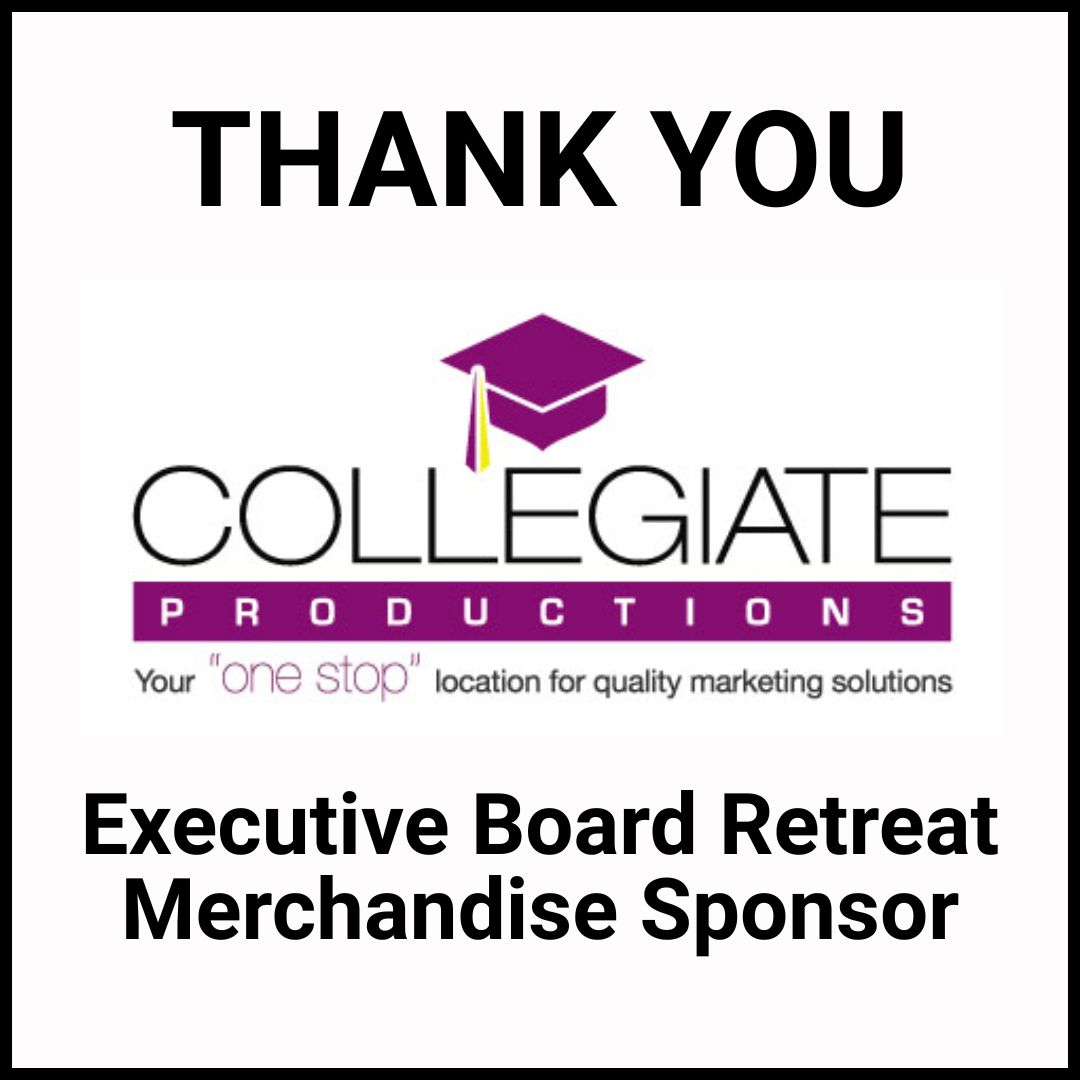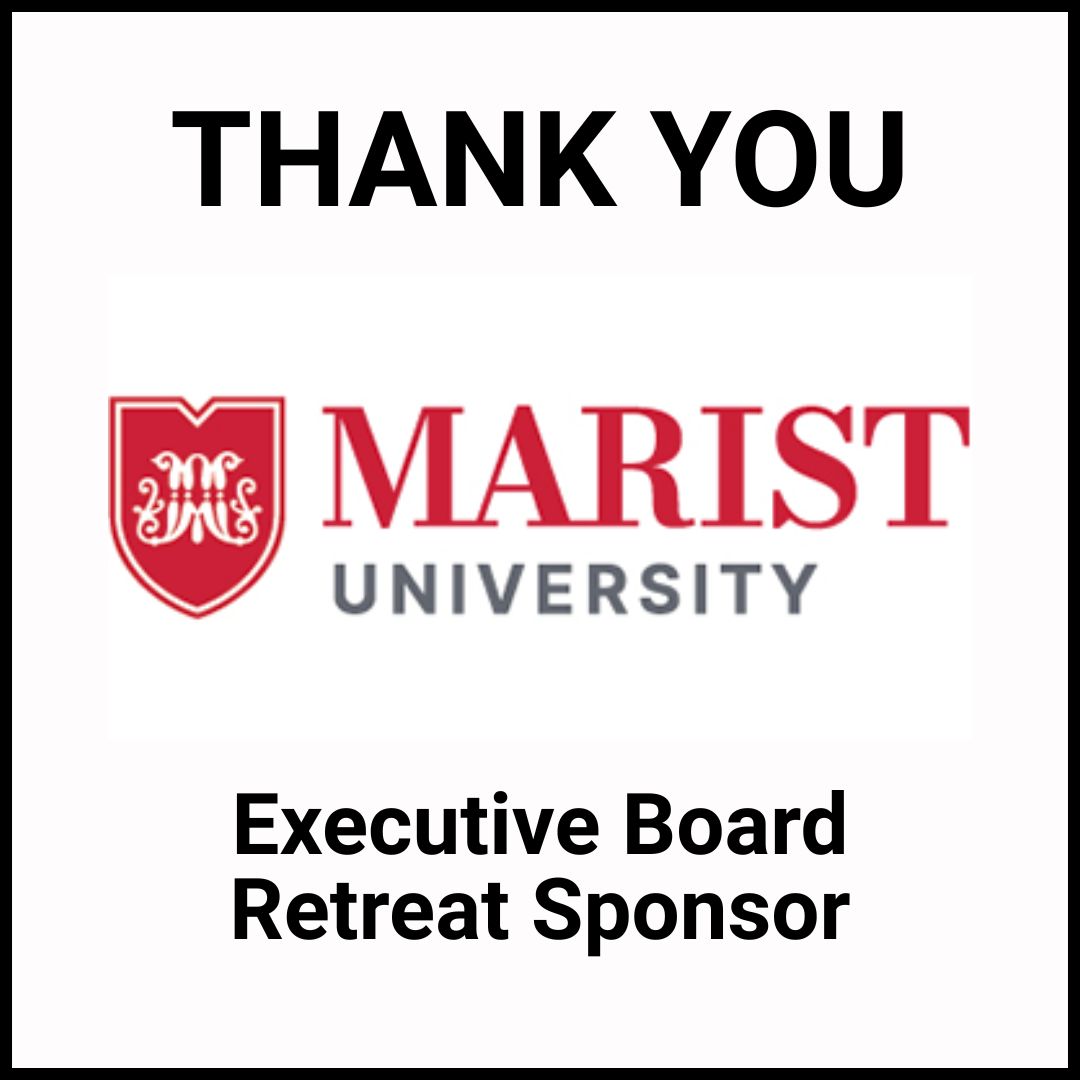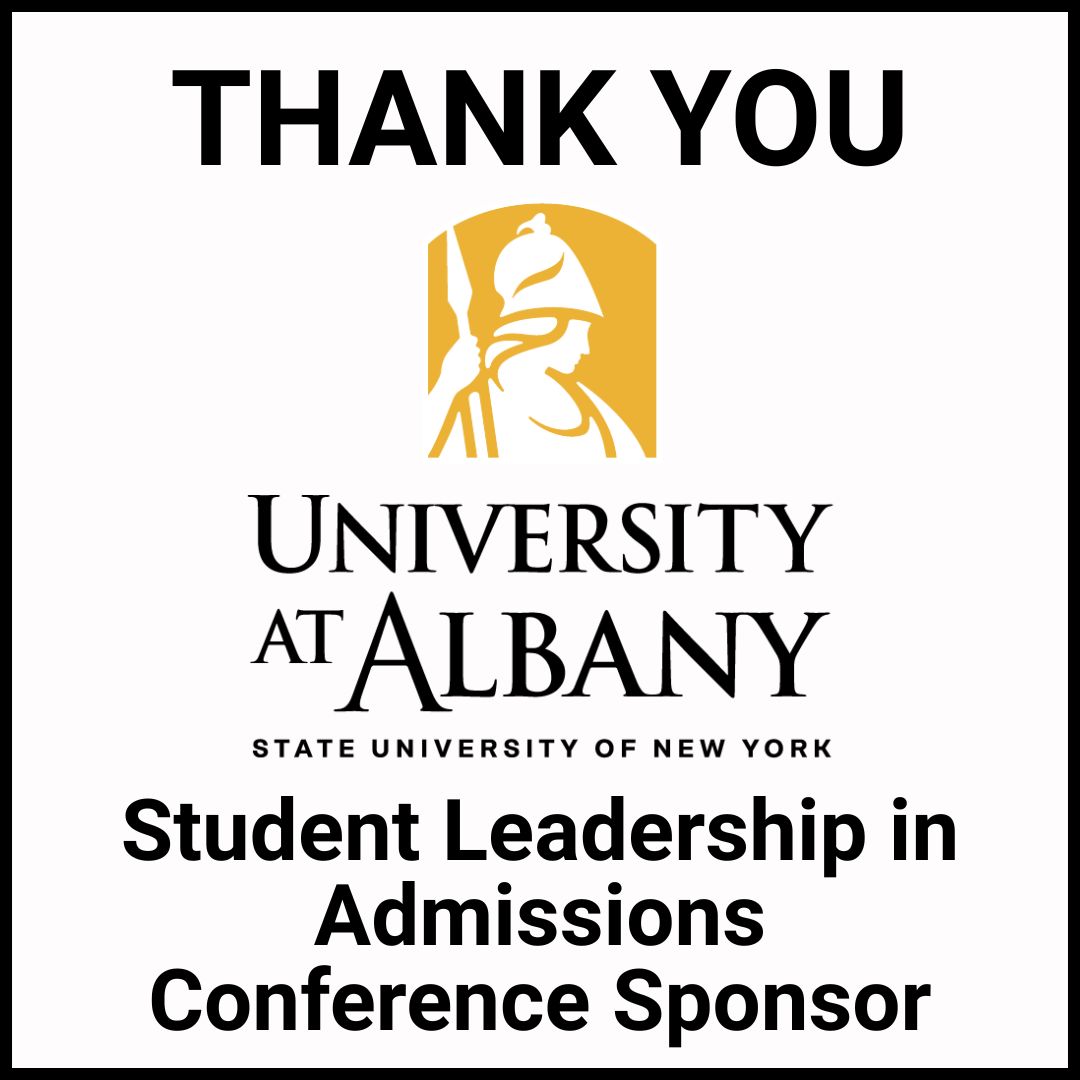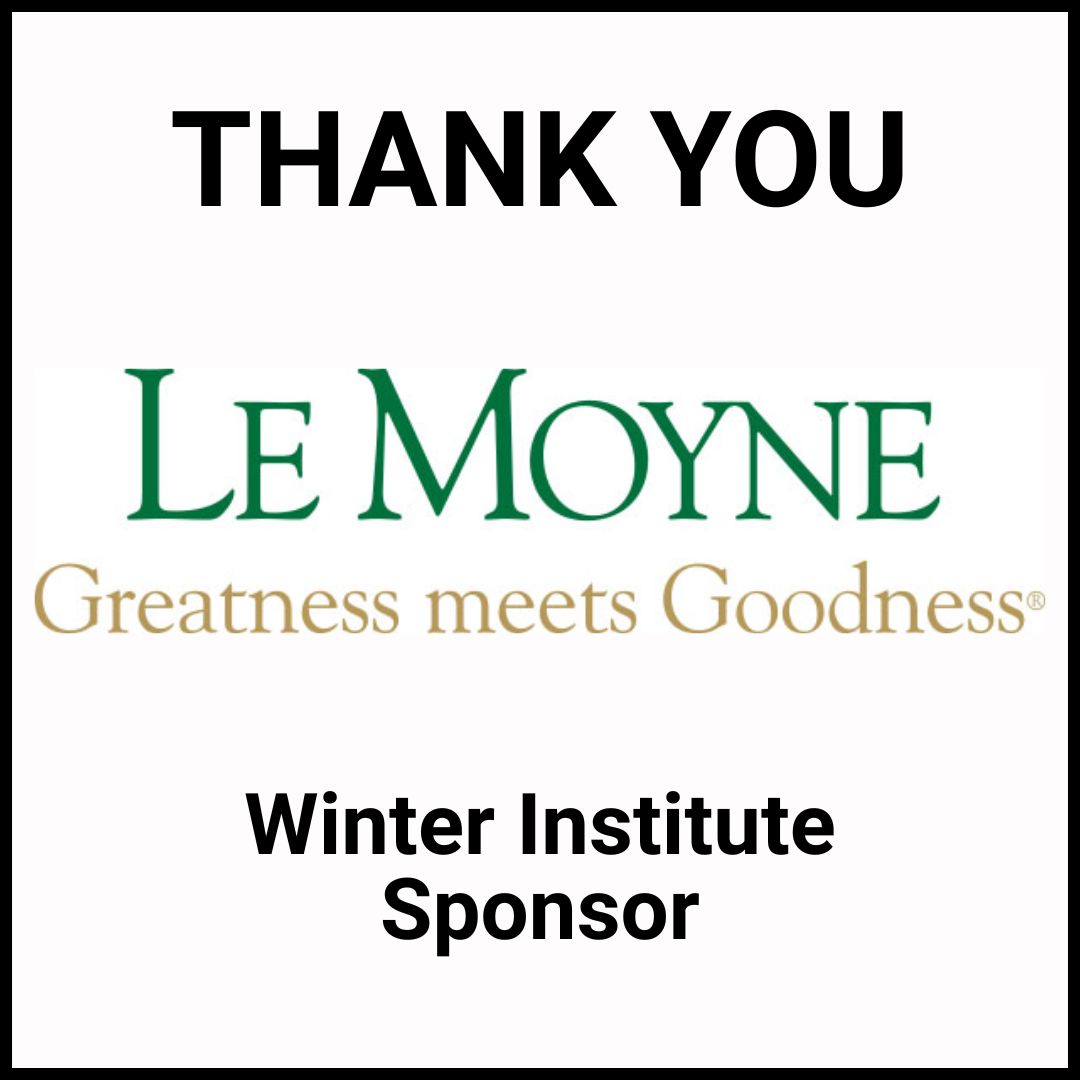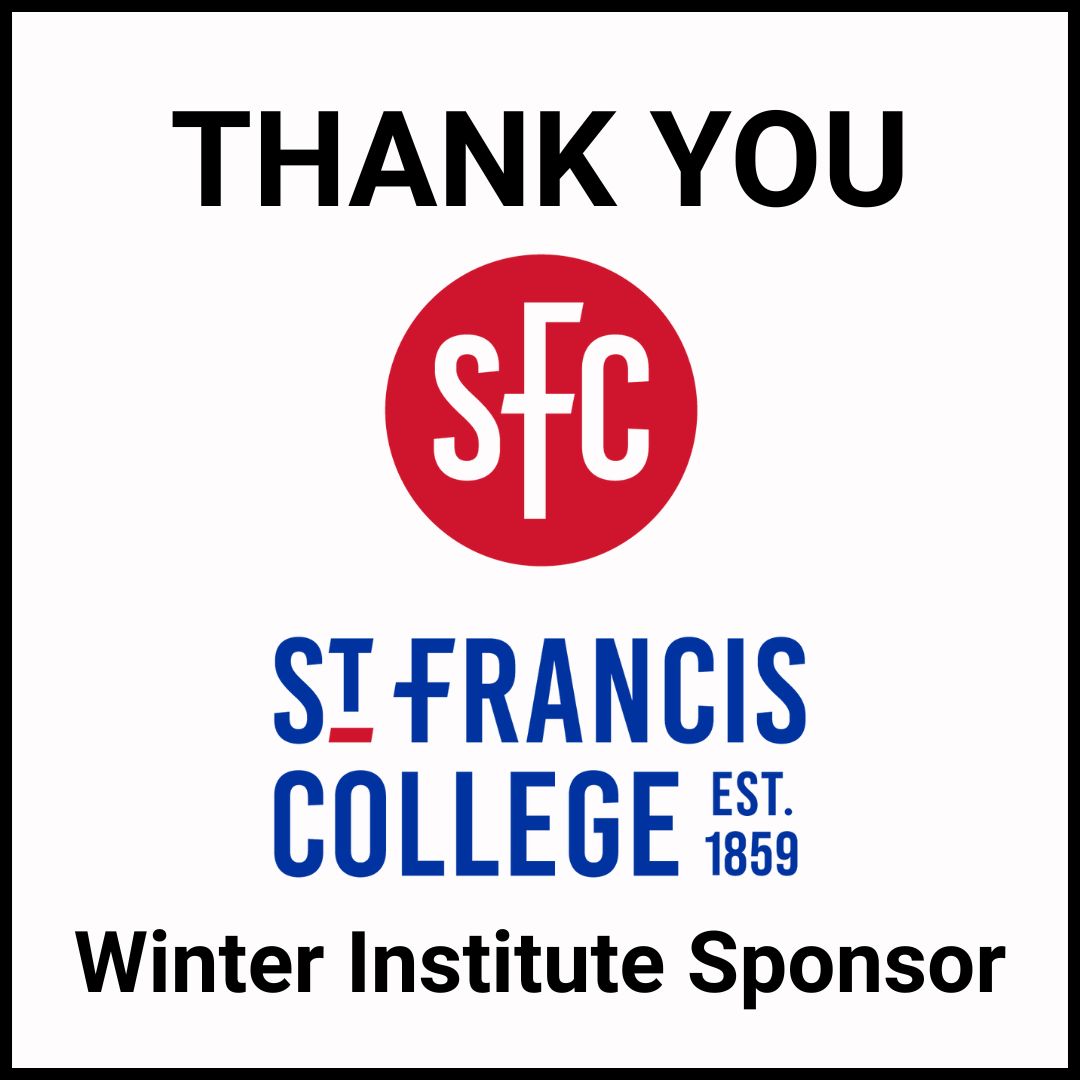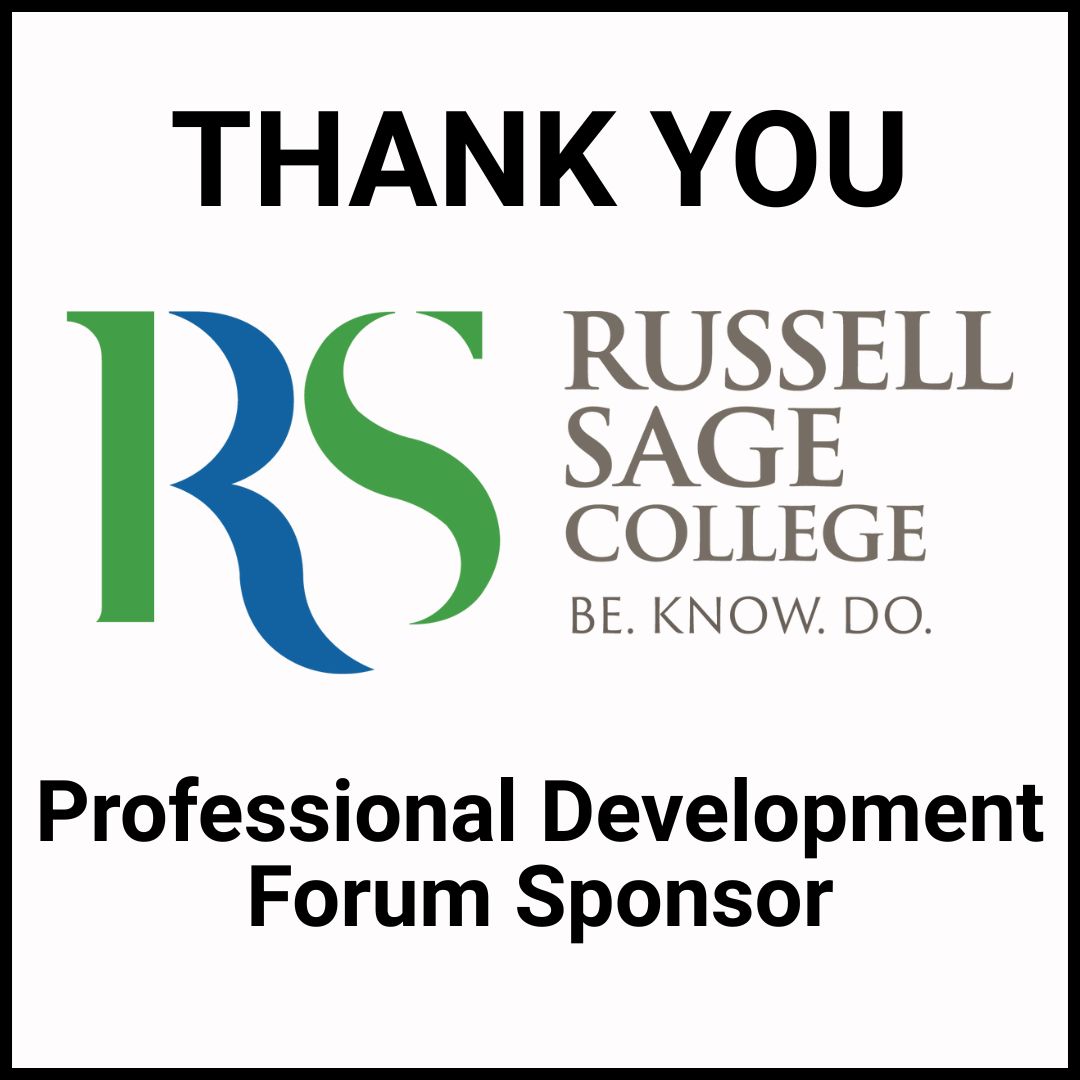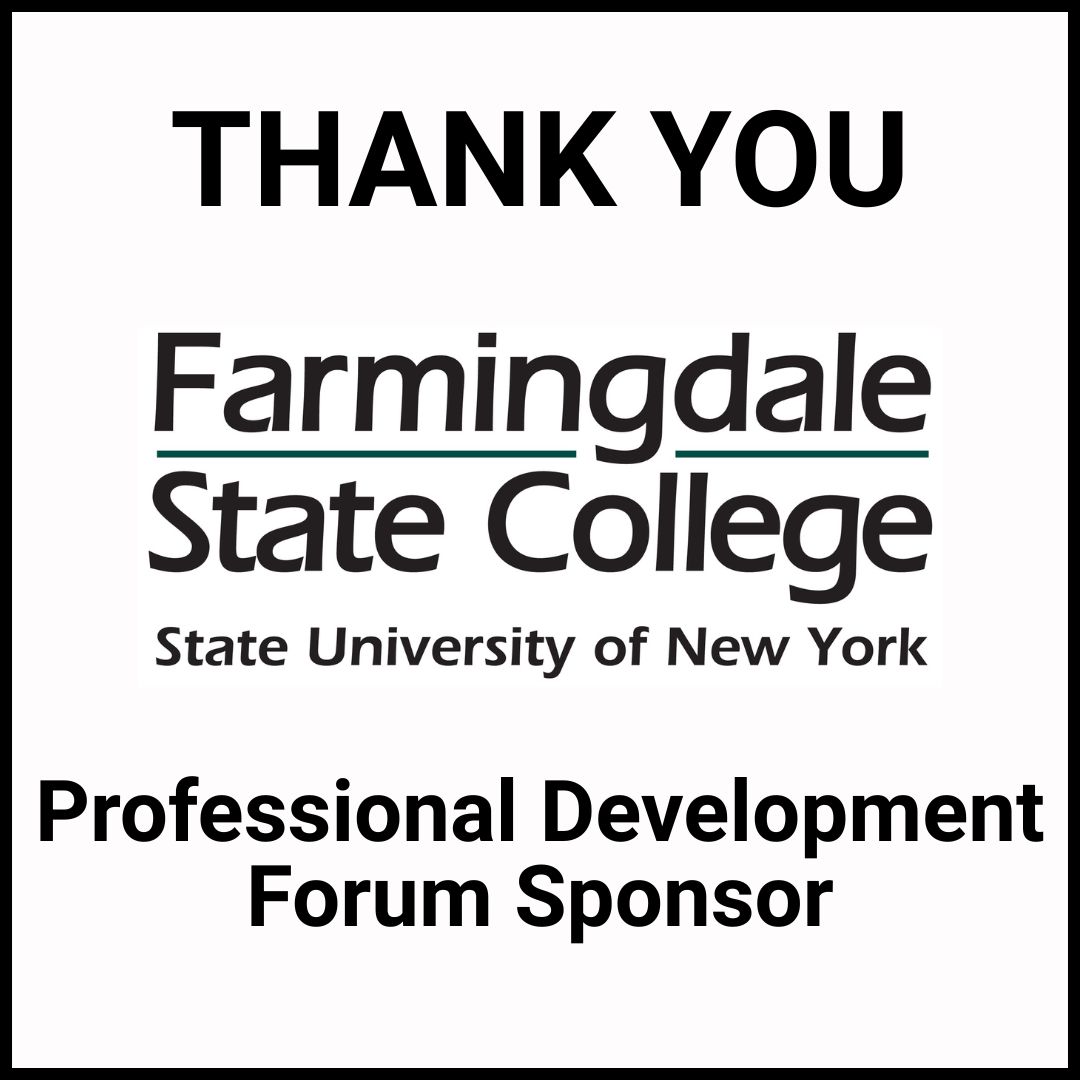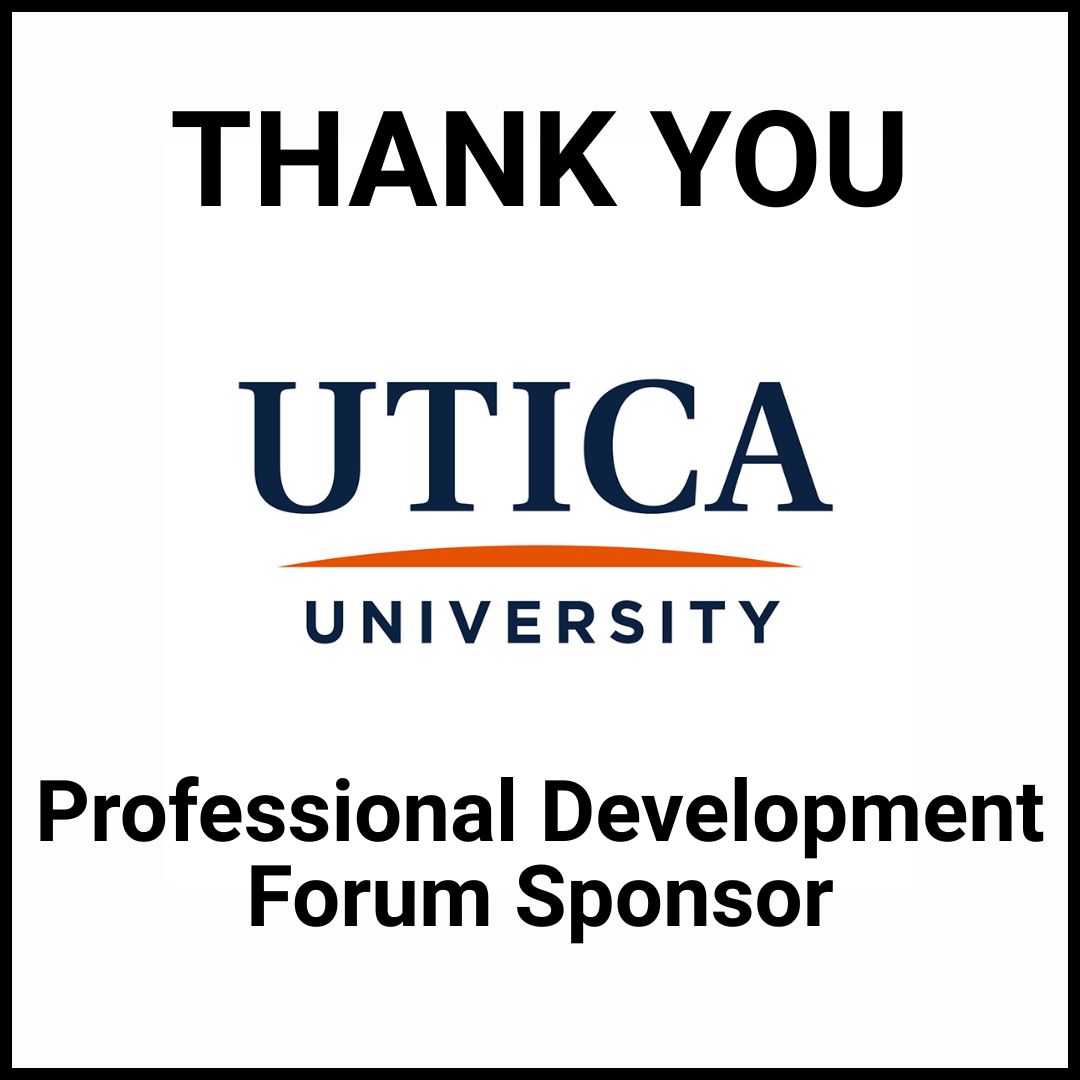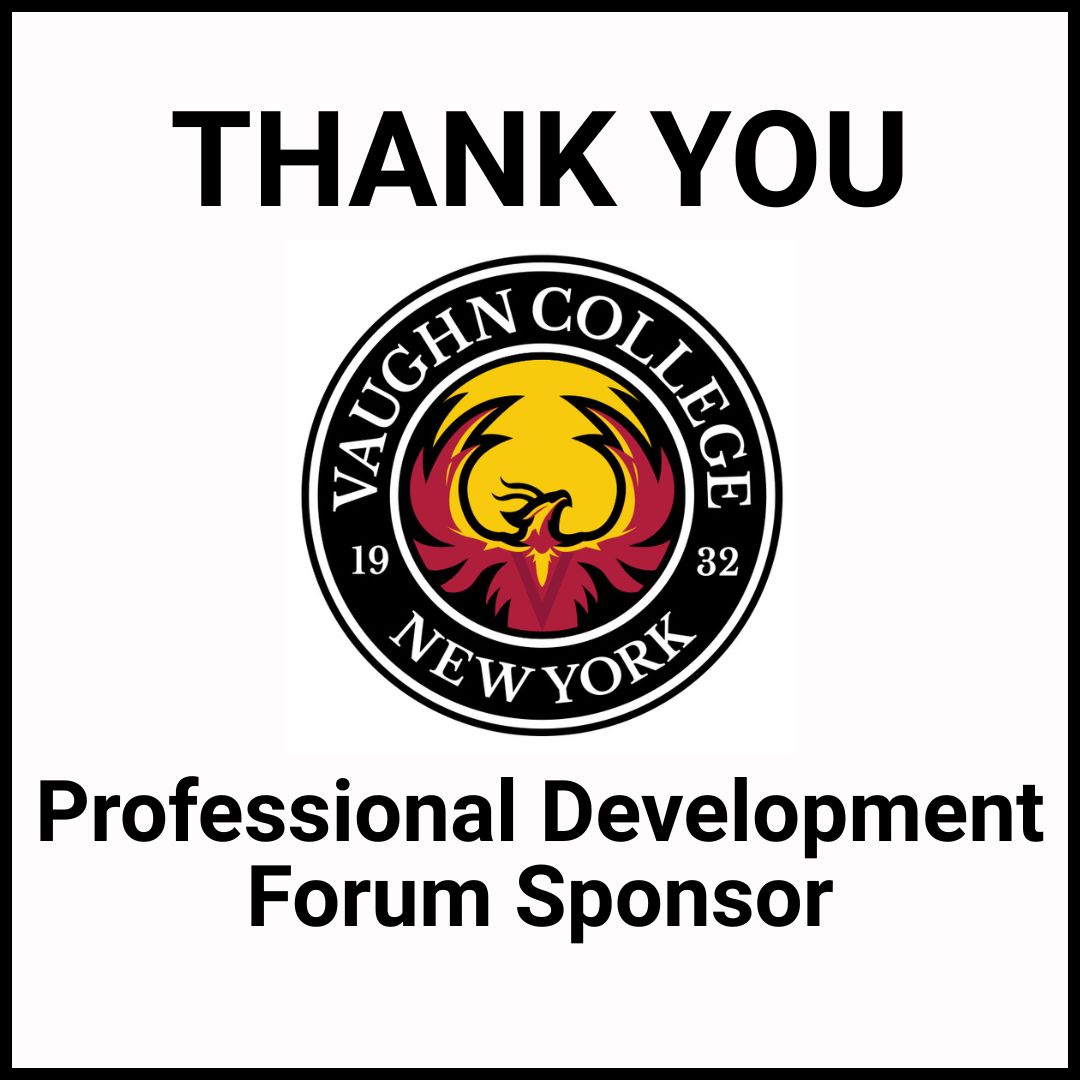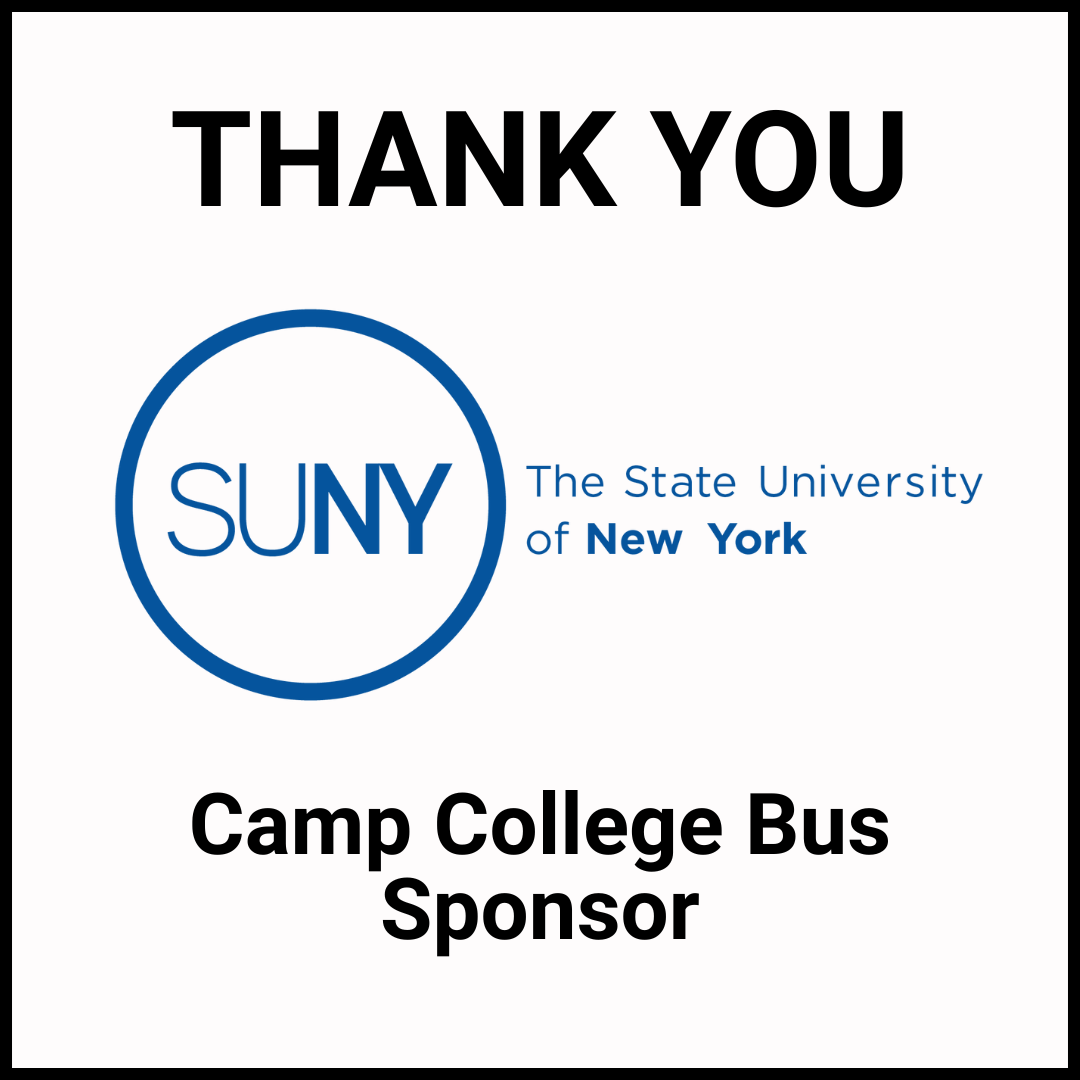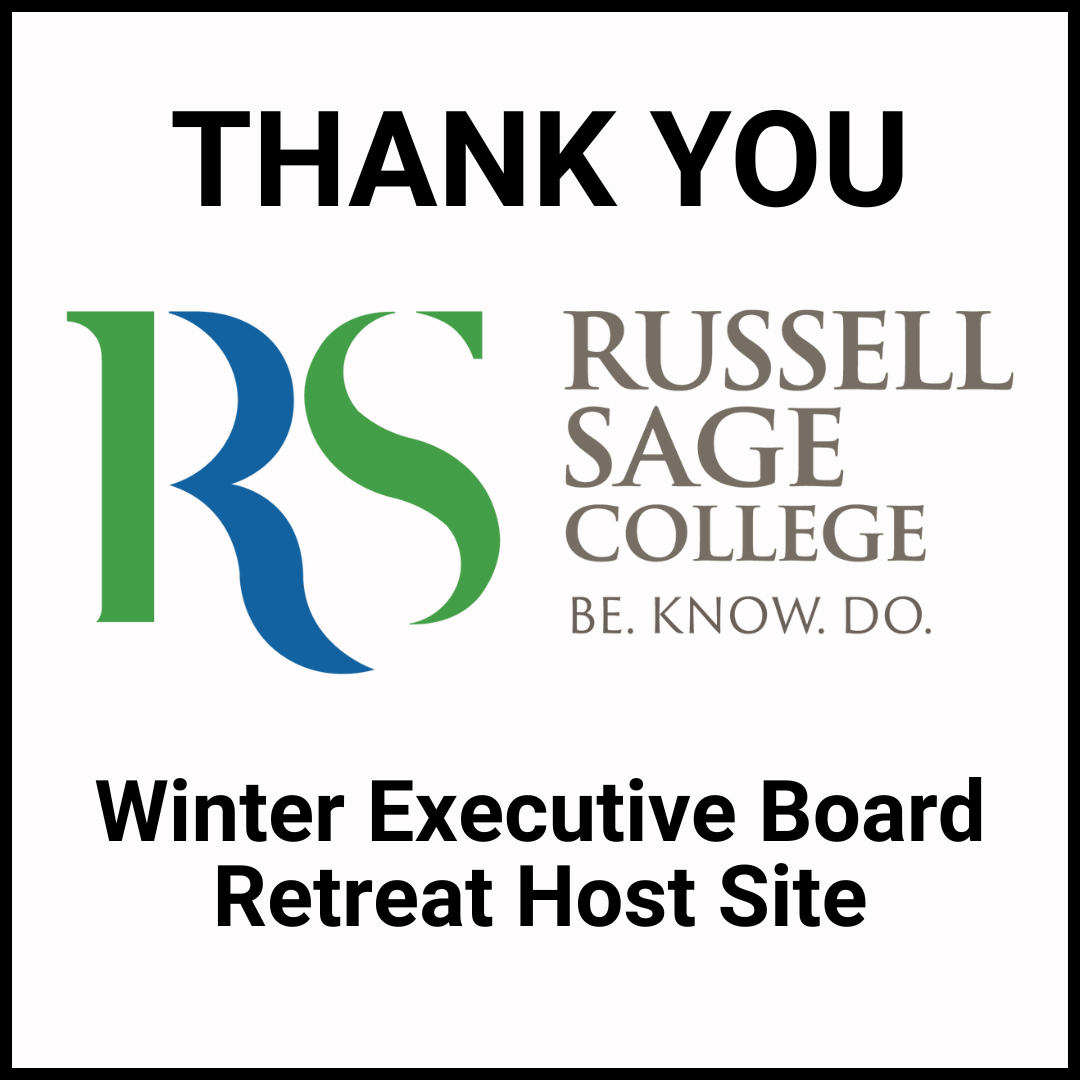- Home
- About
- News
- Government Relations
- Professional Development
- Community Outreach
- Donate
- Membership
|
Message from the PresidentMarissa Guijarro, NYSACAC President Happy New Year! That phrase perhaps doesn’t capture all of the emotions that you and I are experiencing as we start 2021. I wish you peace, hope, and healing. Although it’s been a most unusual and challenging President’s year for me, I feel blessed to serve as a volunteer and leader with a talented and enthusiastic Executive Board. As a member of NYSACAC, you have numerous opportunities to engage with others, advocate for our students and educational policy, and to participate in our daily work and identify future leaders. We have responded to the pandemic by building strong virtual communities. For some of you who usually do not have the time or the funding to attend our in-person events, this year is your chance to explore NYSACAC even more as a virtual participant.
Depending on public health guidelines in your area, you may be at your workplace or working remotely from home. However, in general, most of us are physically more isolated than we normally are from our colleagues, friends, and family members. Please take advantage of NYSACAC as a community that welcomes you. I hope that you will explore the benefits of membership even more in this virtual environment, and make NYSACAC part of your professional and personal wellness plan for 2021! Conference UpdateMarie Nocella, NYSACAC President-Elect
Dear Friends and Colleagues, The countdown to the 2021 Conference at Mercy College is on! I am working closely with the Conference Steering Committee to consider your well being and professional development opportunities to plan for us to safely gather together June 8-11 at Mercy College, including Coming Together June 8-9. Here are some exciting updates:
I look forward to being able to safely gather and celebrate with you in June. Warm wishes for the New Year, Marie Nocella (she/her) SIG (Special Interest Group) UpdatesShameek Robinson and Erica Padilla Happy 2021 NYSACAC members! We continue to navigate times of change and challenge with all that is happening across our state and nation. NYSACAC's Special Interest Groups (SIGs) are stepping up to support their respective communities in response. Here are some brief updates from several SIGs: ACCEPT - Happy New Year from ACCEPT! The last 10 months combined with recent events have brought about challenges for students in K-12 and higher education that couldn’t have been imagined this time last year. The ACCEPT SIG is a group that is committed to efforts around anti-racism equity and justice within the realm of education. We want to hear from NYSACAC members about what you feel is most pressing as we go into the second half of the academic year. What barriers to post-secondary education are prominent in your workplace or community? We'd love to hear your perspective! If you'd like to share your thoughts or get involved in ACCEPT for the Winter/Spring 2021, please reach out to us at [email protected] African Diaspora - The African Diaspora SIG continues to mobilize and engage members. This fall, the African Diaspora SIG convened two planning meetings, and a winter social soiree for members to relax and de-stress. We will continue to share messages and opportunities through our listserv. We look forward to reconvening in the upcoming months and at the NYSACAC Conference. Email [email protected] to learn more. Community College / Transfer - The Community College/Transfer SIG is designed to engage people in discussion about the unique issues facing community colleges and transfer students. This is a special interest group for the discussion of issues that relate specifically to the students at community colleges, and those that transfer from a community college to a 4-year institution. Community College/Transfer has no official updates at this time. We encourage you to email us for more information, or to join us at [email protected] LatinX - Thank you to all who supported our last event for students and families, “College Admission en Espanol,” where we discussed the application process, DACA, Educational Opportunity Programs, and financial aid. We had a great turnout with close to 60 attendees. We are hoping to offer a second event during the spring semester. Please keep an eye out for additional spring semester programming and meetings at the annual conference. If you are interested in becoming more involved with our group, please email us at [email protected] LGTBQ+ - Warm wishes for a happy and healthy new year from the LGBTQ+ SIG! We know 2020 was an incredibly difficult year on a multitude of fronts, and recent events remind us of the many challenges that still lie ahead in this new year. Please know that the LGBTQ+ SIG is a resource you can lean on as you work to support students, colleagues, and loved ones. We invite you to join us! A legislative update from the LGBTQ+ SIG: We are excited to share some positive news from NY state as Governor Cuomo signs into law A05240/S6479 Expanding Gender Neutral Restrooms In All Public Spaces. Several other bills that provide access and protections for LGBTQ+ people remain in the works, and require our advocacy if they are to become law. For more information, please email [email protected] Women in Counseling and Admissions - Our mission is to support anyone who identifies as a woman to achieve success in the admissions profession. The purpose of the group is to assist women in navigating the complexities of our profession including topics such as, but not limited to, sexism, equal pay, and work-life balance. The group also supports the retention and advancement of women in the admission field. Women in Counseling and Admission have no official updates at this time. We encourage you to email us for more information or to join us at [email protected] WE-WISH - The WE-WISH SIG had a productive fall! We began with hosting our kickoff event prior to Thanksgiving, highlighting the history of the holiday, and discussing anti-racism in our profession. Thank you to Dr. Marilyn London, SUNY Stony Brook Lecturer, for leading our first session. Our Winter Lunch Series also began with a discussion on music in the Black Lives Matter movement. In early January 2021 we will be hosting the Presidential Inauguration Watch Party, a Book Club discussion (focused on The New Jim Crow: Mass Incarceration in the Age of Colorblindness by Michelle Alexander), and a lunch series focused on the Netflix Documentary 13th. All are welcome to join us for these events. If you'd like to join the WE-WISH SIG or have any questions, please email [email protected]
Re-Imagining Admissions in the Age of COVIDRob Oliva, Assistant Vice President for Enrollment Management at St. Francis College The COVID-19 pandemic and the resulting restrictions on most college campuses have forced admissions teams to re-imagine how they engage with prospective students. We have had to quickly transition to an environment that combines thoughtful virtual interactions with greatly limited real-world activities that respect safety considerations. For my colleagues and I, offering a personalized experience for each prospective student is at the core of all we do. We tell our students that they are never a number to us. That was the case before the pandemic, and it remains true today. Through trial and ongoing adaptation, we have found a hybrid recruitment approach that works in this new reality and does not compromise our core values. As a result, in Fall 2020 we welcomed the largest freshmen class in St. Francis College’s history. Our new recruitment model is built upon five pillars:
The admissions environment remains fluid and all of us are on an ongoing learning curve. When campus life returns to “normal,” we will undoubtedly apply lessons learned during this time, likely never returning entirely to “business as usual.” We will continue to engage virtually in novel ways and carve out unique real-world experiences that expose prospective students to all we have to offer them. Mentorship Pilot ProgramAnna Ragno and Luis Barcelo, Mentorship Program Coordinators We are so pleased to announce the launch of the Mentorship Pilot Program! After some hard work, we identified 12 amazing mentors who have historically been involved in NYSACAC in a variety of ways. Luis and I also thought it would be best for us to become mentors so that we could properly assess the program's first year and the adjustments that may need to be made for the future. With some help from previous NYSACAC events and references from the board, we found 14 mentees, designed to match well with the mentors. So far, we've had two virtual happy hour events to connect, talk about why we agreed to participate in this program and more recently, to discuss some of our goals and takeaways. During our first meeting, we suggested chatting with the mentor/mentee every 2-4 weeks and even possibly have regular check-ins. It's been a tough year for many of us and the more support we can give, the better! We hope that after this pilot year, we can open this opportunity up to the entire membership. Stay tuned! Injustice Exists: BLM in Higher EducationAlex El Helou, Assistant Director of Admissions for Communications, SUNY Maritime College Injustice exists. Black Lives Matter is a movement that has existed for a number of years now, but has received renewed life through the events of recent months. Black Lives Matter is not a statement that rejects the idea that all lives do matter. The issue at its root is that the statement “all lives matter” does not hold its weight until black lives matter. What does this mean? Black people (primarily black men) are the subject of racially motivated violence at an alarming rate and killed at a significant rate above their white counterparts each year. There is meaningful racial injustice that continues to exist in our society. The area of education is no different. According to Forbes's analysis of a 2011 cohort entering college, black students faced the highest hurdle compared to other student groups. Black students have the lowest six-year completion rate in both public and private post-secondary schools, at a rate of 46% and 57.3%, respectively. In addition, many of these students graduate with more debt than their peers. These students are also least likely to graduate from STEM degrees, at a rate of 12.6%. As evidenced in the statistics, black students have higher unemployment rates and receive lower salaries than their peers. Why is this important? The reason for these alarming statistics is not an inability to achieve or perform. There are clear disparities that create a path that is not equal for students. For example, students that are more affluent face less pressure as they are better able to finance their education. And black students come from less affluent backgrounds at a higher rate than white students. As a result, higher education institutions need to institute policies to increase equality and do so with more intention. Holistic review is vital to increase access. Integrating racial justice into the curriculum provides students two things – an understanding of all history and an acknowledgement that certain events do matter. Annual events on campus that highlight different cultures can also help slowly acclimate campuses to what should be normal practice. These activities also provide students with the opportunity to be in their space experiencing something that is of importance and value to them, which they do not always have the opportunity to experience. Having a more diverse faculty and staff provides students with mentors that provide a vision and roadmap to potential success. Providing better financial support will also help with socioeconomic disparities. Overall, educational institutions need to lead by example and help foster positive change to continue to build a healthier campus environment. This means acknowledging the importance of inclusion and having no tolerance for racial bigotry. Many campuses are currently forming a task force to address these challenges on campus, and that is a good first step. As we deal with the progress of this movement, there will be some voices that challenge these changes. It is important at those times to remember the words of author Ravi Zacharias; "We have a right to believe whatever we want, but not everything we believe is right." Updates from the Government Relations CommitteeEmily Task, Government Relations Co-Chair New Year - New Opportunities to Advocate for Postsecondary Access and Equity For many of us, we look back at 2020 as a painful and challenging year. For me, I lost my close friend, colleague and Government Relations Co-Chair, Julia Forman. For those who knew her, Julia was such a positive force in the world and a tireless advocate for post-secondary access and equity. As our Government Relations Committee prepares for the 2021 Virtual Legislative Advocacy Day, I feel confident that we will be bringing Julia’s spirit with us as we continue the fight for increased access to financial aid, opportunity programs, and to reduce barriers to postsecondary enrollment and graduation. In a new year, it feels important to take stock of some of the victories and new opportunities that we can leverage, proving that consistent and vocal collective advocacy makes a difference.
New beginnings also mean that I can get to introduce the new Government Relations Co-Chair, Nicole Ramos. Nicole is a current college advisor at New York University College Advising Corps at International High School at Union Square. “I became interested in the Government Relations Committee after attending the NY State Dream Act Session at the NYSACAC conference at Le Moyne in 2019. After the session, I had the opportunity to talk to Emily Task, and further the role of advocacy in the higher education space and decided to join the committee. I care very deeply about advocacy and government relations work because they directly impact our student's ability to both attend and persist in college. Having our student's basic needs met, increasing state aid, and supporting pathways to postsecondary persistence are all essential in aiding our students' success. I believe that if we can help lawmakers understand the needs through advocacy, we can help alleviate some of the barriers our students face and help them get one step closer to their goals.” We hope you will join us for this year’s first-ever VIRTUAL LEGISLATIVE ADVOCACY DAY on Tuesday, Feb 9 and Wednesday, Feb 10! More information can be found here at https://www.nysacac.org/legislative-advocacy-day, and don’t hesitate to reach out to [email protected] with any of your questions or thoughts. Gates Project Update: Engaging Decision Makers on Attainment Targets and Student SuccessKurt Thiede, Project Manager As we have recently turned the calendar page to a new year, we now turn the focus of the Association’s Student Success Project to a design and implementation phase. We have spent the past year gathering information, insights, and opinions. Our appreciation to the hundreds of fellow professionals who found time in their busy and often disrupted schedules for “one more” Zoom meeting. Their thoughtful input is documented in a report of the series of virtual conversations we conducted this past summer. This is available on NYSACAC’s website. Shortly, the report of this fall’s virtual statewide convenings also will be available there as well. Where do we go from here? As mentioned earlier, we are in a design and implementation stage. As we work closely with the Government Relations Committee to support its ambitious advocacy agenda, we will outline potential programmatic responses to the issues raised during our discovery sessions. This will include identifying possible partnerships with pertinent professional organizations and proposing a schedule for implementation. The project’s work will extend beyond its end date in March. Our goal is to have numerous program roadmaps available for implementation in the years ahead. Along with this work, we have been actively engaged with other efforts aimed to increase postsecondary attainment and student success in New York State.Of particular note, Reach NY's proposal to establish a statewide postsecondary education goal and the NYS Education Equity Compact effort led by the United Way of NYC. As always, your thoughts are most welcome. Please send them to Kurt Thiede, Project Manager, at [email protected] Small Steps Go PlacesGenevieve Griffin 9th and 12th graders have lots more in common than meets the eye, they are hardly just classmates and peers. However, both grades are being introduced to the college admissions process at different points, and told what steps are necessary for success. How seriously they take those steps, and which daily habits they turn into forever habits plays a huge role in the process and outcomes. Creating and embracing these new habits for success is going to feel like nothing in comparison to helping students break the ones that may hinder their success. COVID-19 made this curve incredibly steep, hitting the US Education System like a perfect storm. It’s disrupted their cycle of information, and unfairly handed an excess of responsibilities and pressure to all students and their families. Again, our students' opportunity for success is being hindered, especially in their ability to apply what they’ve been working so hard to learn and understand. It’s stopped them from applying confidently to colleges. One could say it pulled the rug out from under all of us. Many students and their families, teachers and counselors are still dazed at a time when navigating forward to a hopefully more relevant education system is already rumbling alive. The Small Steps Go Places strategy, through the Option Play program, helps students and their families assess and reestablish what’s important about 9th grade and 12th grade, and then guides them as they build essential good habits and move toward a successful transition from high school to college. Covid-19 has expanded the types of challenges students face by making it seem like going to school is optional. This is not true and will be harmful for students’ options and developing independence. Here in New York State there is a wide range of schools, students, and families. Subgroups of students and families are challenged by lack of resources and inequality, while others suffer from anxiety and disengagement. All students have been impacted by the disruption that resulted from Covid-19. All students need a clear understanding of why being a 9th grader or 12th grader is important, and to build solid good habits in preparation for completing high school, and beyond. Option Play is here to help! Local Professional Earns Distinguished CredentialJessie Atkin Jodi Rosenshein Atkin, Independent College Admissions Counselor of Rochester, NY is part of a growing group of educational consultants and school counselors in the nation to earn the designation of Certified Educational Planner (CEP). Ms. Rosenshein Atkin is the only college admissions professional in Monroe County to have received this credential. “We are proud to have Jodi receive this certification,” said Katelyn Klapper, Chair of the American Institute of Certified Educational Planners (AICEP). “We believe this certification sets the standard for professional college counselors not only in knowledge and experience, but in ongoing professional development. There is no higher mark of distinction in the profession,” she noted. Jodi’s independent college admissions work (http://www.bestfitcollegechoice.com/) provides support and guidance to students and their families in the college selection process. Her services include, but are not limited to, individualized creation of lists of potential colleges, management of the overall admissions process, and assistance with the nuances that can make an application noteworthy. She advocates for students engaged in the transfer process as well. Through her work with the student and family, she helps to clarify characteristics of a “best fit” school, academically, socially, and financially. The profession of college counseling is growing in importance and recognition, especially as post-secondary education changes in light of the pandemic and dynamic job markets. Certification is granted to those consultants and counselors who meet stringent application requirements including a Master’s degree, specialized training, significant professional experience, and involvement in professional activities and organizations. Rosenshein Atkin had to pass a board certified examination, covering both institutional and professional knowledge; provide a list of professional references; and sign a pledge to adhere to stringent ethical practices. CEP's are recertified every five years on the basis of college visits, continuing education hours and other professional endeavors. “The group of certified educational consultants and counselors is a remarkable one,” noted Klapper. “Never before in the profession of educational consulting have persons been asked to demonstrate such a high level of professional knowledge and experience,” she concluded. The CEP Program began in 1994 under the sponsorship of the Independent Educational Consultants Association (IECA), an association representing full-time experienced professionals in private practice in the field of college guidance and school/educational program placements. “The CEP designation assures families that they are working with a qualified professional who is committed to maintaining the highest quality of service to their students,” said Mark Sklarow, Executive Director of IECA. In addition to the CEP designation, Jodi is a Professional Member of IECA, Higher Educational Consultants Association, National Association of College Admissions Counselors, and the NYS Association of College Admissions Counselors. |
